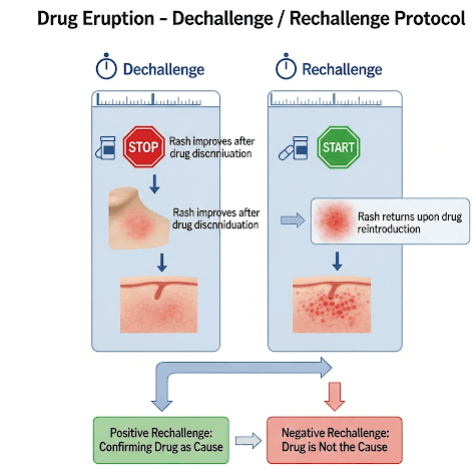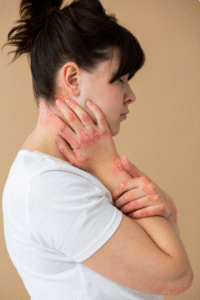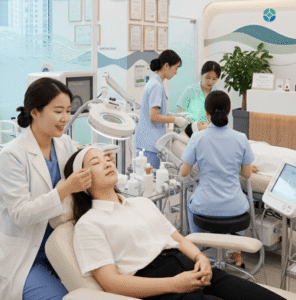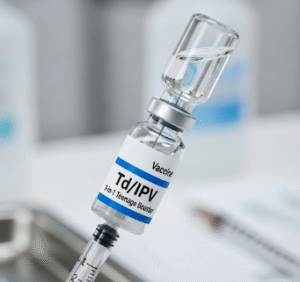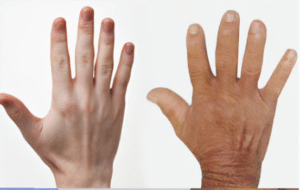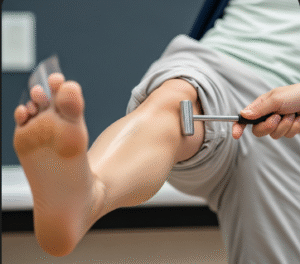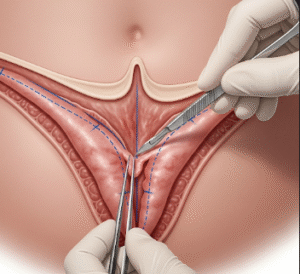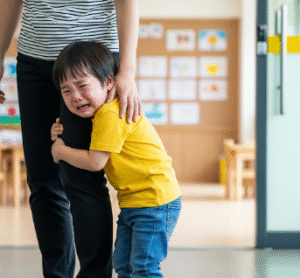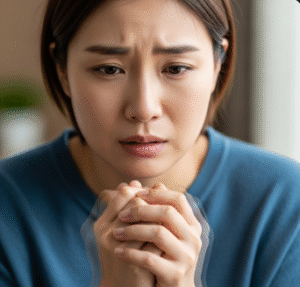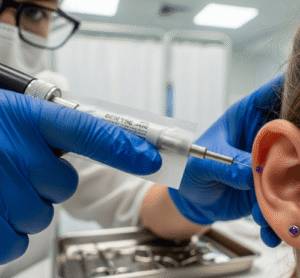What it is
➝ Drug eruptions are adverse skin reactions to medications, ranging from mild exanthematous rashes to severe conditions such as Stevens–Johnson syndrome (SJS), toxic epidermal necrolysis (TEN), or drug reaction with eosinophilia and systemic symptoms (DRESS).
➝ Dechallenge means discontinuing the suspected drug and observing whether the eruption improves.
➝ Rechallenge means re-administering the suspected drug to confirm causality, though this is rarely performed due to safety concerns.
➝ In Korea, management of drug eruptions emphasizes prompt dechallenge, supportive care, and cautious use of rechallenge only in selected situations under medical supervision.
Why it’s done
→ Dechallenge is done to confirm that the suspected drug was responsible and to allow the skin to heal.
→ Rechallenge may be considered when the suspected drug is essential and irreplaceable (e.g., anti-tuberculosis medications, chemotherapy).
→ To avoid unnecessary avoidance of important drugs when the eruption may have been due to another cause.
→ In Korea, rechallenge protocols are structured and done only in hospital settings, never at home.
Alternatives
→ Drug allergy testing: Skin prick, intradermal, or patch testing for certain drugs (e.g., antibiotics, local anesthetics).
→ In vitro tests: Lymphocyte transformation test (LTT), basophil activation test (BAT), though availability is limited.
→ Drug provocation test (DPT): Controlled administration of suspected drug in small escalating doses; considered gold standard but risky.
→ Substitution: Switching to another drug in the same class if safe alternatives exist.
Preparation
→ Detailed drug history: list of all current and recent medications, including over-the-counter and herbal remedies.
→ Assess type and severity of eruption (mild exanthematous vs. severe blistering).
→ Baseline blood tests if systemic involvement is suspected (CBC, liver, kidney function).
→ In Korea, many hospitals use standardized drug eruption reporting systems to track cases and guide future therapy.
How it’s Done
→ Step 1: Dechallenge
- Immediately stop the suspected drug(s).
- Observe whether skin eruption improves (usually within 1–2 weeks for mild rashes).
- Supportive care: antihistamines, topical steroids, emollients.
- Systemic steroids for severe or systemic reactions (e.g., DRESS, SJS/TEN).
→ Step 2: Rechallenge (rare and selective)
- Only considered when no alternative medication is available.
- Performed in hospital with resuscitation equipment available.
- Small starting dose → gradual escalation under close observation.
- Immediate discontinuation if reaction recurs.
- Not performed in life-threatening eruptions (SJS/TEN, DRESS, AGEP).
→ Step 3: Documentation
- Record exact drug, dose, timing, and reaction.
- Provide patient with allergy card or medical alert note.
Recovery
→ Mild eruptions resolve within 1–3 weeks after drug withdrawal.
→ Severe eruptions (SJS/TEN, DRESS) may take months, requiring hospital care.
→ Once the offending drug is identified and avoided, recurrence is preventable.
→ Patient education ensures safe future prescribing.
Complications
→ Failure to dechallenge: Ongoing exposure may worsen eruption.
→ Unnecessary rechallenge: May cause recurrence or severe reaction.
→ Cross-reactivity: Some drug classes (e.g., beta-lactam antibiotics, anticonvulsants) have high cross-reactivity.
→ Psychological burden: Fear of future medication use.
Treatment Options in Korea
→ Korean hospitals follow structured drug eruption protocols emphasizing:
- Immediate drug withdrawal.
- Use of supportive dermatologic care (antihistamines, steroids).
- Hospital-based drug provocation testing when rechallenge is unavoidable.
→ Common scenarios for rechallenge in Korea:
- Anti-tuberculosis therapy (isoniazid, rifampin, pyrazinamide, ethambutol).
- Anti-epileptics when alternatives are limited.
- Chemotherapy drugs where substitution is not possible.
→ Rechallenge is performed under strict monitoring in tertiary hospitals, with stepwise dosing and emergency preparedness.
→ Patients are always issued drug allergy documentation to prevent accidental re-exposure.
→ With Korea’s careful balance of safety and necessity, dechallenge is standard, while rechallenge is rare, selective, and highly controlled.

